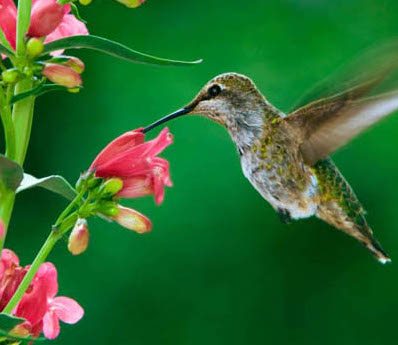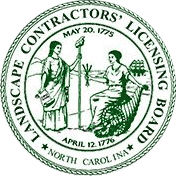 Hummingbirds are an important link in the pollination process which is important to our food supply. Just like the bees, butterflies, bats and other types of birds that visit our gardens, hummingbirds require nectar to survive. It is important now more than ever for us (humans) to do our part to maintain a healthy ecosystem. Making sure that our pollinator friends have the proper plants that they need to survive is our responsibility. With several species of bees now on the endangered species list, it is essential that we grow plants that provide pollen and nectar for the bees as well as for pollinators like hummingbirds. Although the decline of the bees is thought to be attributable to parasites, diseases and exposure to pesticides, development and climate change are contributing to the changing hummingbird-friendly habitat.
Hummingbirds are an important link in the pollination process which is important to our food supply. Just like the bees, butterflies, bats and other types of birds that visit our gardens, hummingbirds require nectar to survive. It is important now more than ever for us (humans) to do our part to maintain a healthy ecosystem. Making sure that our pollinator friends have the proper plants that they need to survive is our responsibility. With several species of bees now on the endangered species list, it is essential that we grow plants that provide pollen and nectar for the bees as well as for pollinators like hummingbirds. Although the decline of the bees is thought to be attributable to parasites, diseases and exposure to pesticides, development and climate change are contributing to the changing hummingbird-friendly habitat.
Nectar makes up 90% of the hummingbirds’ diet and they eat up to several times their weight in nectar every day. They are fascinating to watch as they hover like helicopters extracting nectar from flowers with their long bills. So it is essential that we select nectar-rich flowering plants. It doesn’t matter if you have a large area to work with or not much space at all. It’s easy to grow flowering plants in containers for these hummers. Just be sure to have a selection that blooms at different times of the year to provide them with a steady supply of food.
These unique fluttering dynamos are most attracted to red and orange tubular plants as well as native plants that are rich in nectar. Some hummingbird attractors include honeysuckle, bee balm, begonia, butterfly weed, columbine, lantana, foxglove, crape myrtle, cardinal flower, lilies, phlox, gladiolus, penstemon, and salvia. However, it is best to select plants that are natives and/or those that do best in the Raleigh area. Some other tips to attract hummingbirds include:
- Providing a source of water from a fountain or misting device because hummingbirds like to bathe frequently.
- Eliminate the use of pesticides. Hummingbirds require protein from insects.
- Provide them with branches to perch on and habitat like shrubbery for shelter.
We would love to assist you with a hummingbird friendly garden or landscape. Call us at 919-844-3441 or fill out the contact form below.

